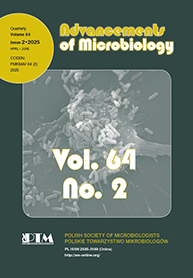PHAGE THERAPY AS AN ALTERNATIVE TO ANTIBIOTICS: HARNESSING PHAGES IN ORAL MEDICINE
Abstract: This narrative review aims to discuss the potential of phage therapy as an alternative to antibiotic therapy, with a particular emphasis on its potential applications in dentistry.
Despite historical fluctuations, phage therapy is gaining increasing acceptance and becoming more widespread in the treatment of multidrug-resistant (MDR) infections. Contemporarily, phage therapy has become a prevalent treatment modality for bacterial infections of the digestive system in countries such as Georgia. In clinical trials, it has been used to treat wounds, bone and blood infections. In theory, it can be used in any instance of bacterial infection, including within the oral cavity. There are numerous methods of administration, and the therapy itself is regarded as both safe and effective, particularly in cases where antibiotics are ineffective, such as in the development of biofilms or infections by MDR bacteria.
Despite the lack of ample clinical studies evaluating the effectiveness of this therapy in dentistry, a growing body of evidence suggests its potential use in restorative dentistry, endodontics, periodontology, as well as oral and maxillofacial surgery.
To determine whether phage therapy can be considered a viable alternative or to assess its effectiveness when used in combination with antibiotic therapy, further regulations and research are warranted.

